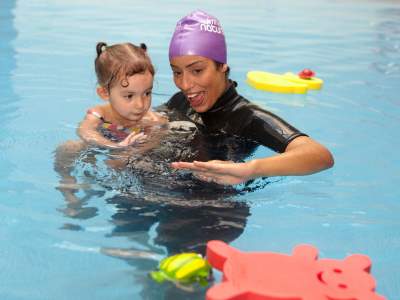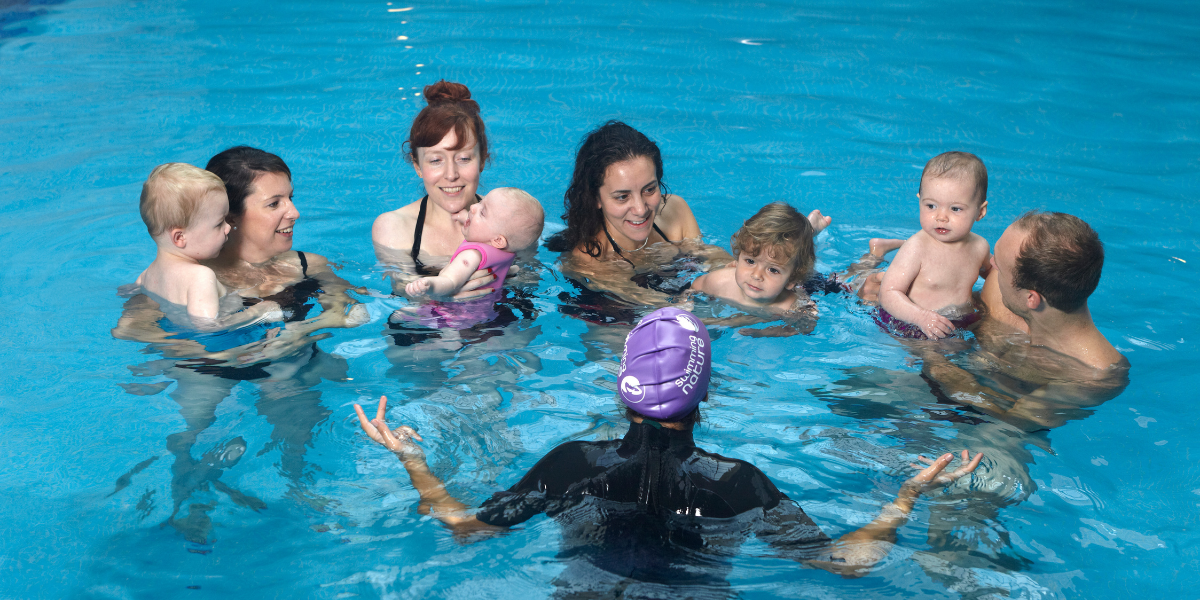Swimming is an essential aid for any child’s healthy physical and mental development. Here’s how swimming aids childhood development and learning.
Swimming and Childhood Development: A Splashing Combination
Why swimming is good for your child’s development.
Children who learn how to swim experience a myriad of benefits. Their mental health, physical wellbeing, and overall development all get a boost when they get comfortable in the water. Swimming has been found to aid kids’ mental and physical development, improve their social skills, provide them with a confidence boost, and even teach them some valuable safety skills!
Are you eager to give your children the best possible start in life? Read on to discover exactly how swimming can aid your children’s development and set them up for a healthy and vibrant future.
Focus on Health
One of the most notable benefits of swimming for people of all ages, and particularly kids, is its ability to improve their physical health and fitness. Kids who swim regularly get plenty of cardiovascular activity, which improves the condition of their lungs, hearts, and vascular systems.
Swimming involves a range of physical activities and movements, which also enables your kids to develop their strength, stamina and endurance in a fun and low-stress setting.
Additionally, swimming can also enhance their balance and physical flexibility, while keeping them at a healthy weight and helping them to avoid the many challenges that come with being overweight and battling with childhood obesity.
Swimming for Savvier Social Skills
Swimming is usually a very social activity, and this is fantastic news for childhood development. While your children swim together with other kids, they are provided with an excellent form of social engagement that helps them to sharpen their social skills outside of a traditional school setting.
When you encourage your kids to become involved in a group activity like swimming, they will also meet friends with similar interests, helping to expand their social circles and giving them something new to look forward to.
Kids who swim regularly have also been shown to gain more confidence over time, both when it comes to social situations and being in the water. Swimming teaches children to develop confidence, self-trust and self-esteem when it comes to tackling the pool and having fun with their peers. Kids who swim also develop a more positive and eager attitude towards physical activity, which in turn improves their health and their self-esteem.

Building Safety Skills
Water safety skills are absolutely crucial for children of all ages to have. According to the Centers for Disease Control and Prevention (CDC), around 20% of all fatal drowning cases can be attributed to children younger than 14 years of age.
You can give your children must-have water safety skills by teaching them how to swim properly with the help of a trained instructor. Remember, you need to supervise your children at all times when they are in the water, even if they do know how to swim already!
Spotlight on Mental and Cognitive Development
Many studies have shown that the exercise provided by swimming aids in children’s healthy mental development and helps them to foster excellent coordination and motor skills. The stimulation of younger children’s senses by swimming also improves their mental and emotional development.
One study of over 7,000 swimmers conducted by the Griffith Institute for Educational Research and published in 2012 found that early swimmers generally had more advanced large and fine motor skills than other children of their age groups. These kids also had more proficiency in identifying numbers, counting and solving maths problems, had more advanced language skills, and were even better able to identify shapes and objects in illustrations correctly.
According to an excerpt from “How to Teach your Baby to Swim-From Birth to Age Six” by author Douglas Doman, babies and young children who develop motility skills from swimming early on also have deeper, more regular, and more mature breathing patterns. This enhanced respiration allows them to make more sounds, which improves their language development and their ability to communicate.
Last but certainly not least, swimming strengthens the mind-body connection, which is closely tied to children’s abilities to learn and to retain information. As a child’s body is stimulated through exercise such as swimming, their mind is also stimulated, fuelling further brain development and an increase in intelligence as well.
Stress Reduction
Today’s children are more stressed than ever before – and swimming can help. The activity facilitates the release of bursts of endorphins in kids’ brains, which helps them to relieve stress and develop a more balanced lifestyle over time.
Maintaining a regular swimming schedule will also help your children to develop a routine, which will improve their time management skills and help to alleviate stress and anxiety as well.
Help Your Child Dive In
Swimming is an excellent activity for every child, particularly when it comes to aiding their physical and mental development.
Not only is this activity filled with fun, but it helps kids to manage their stress levels, perform better at school socially and cognitively, build vital water safety skills, and keep their bodies fit and healthy for years to come. All great reasons to get in the water!
You might also like:





